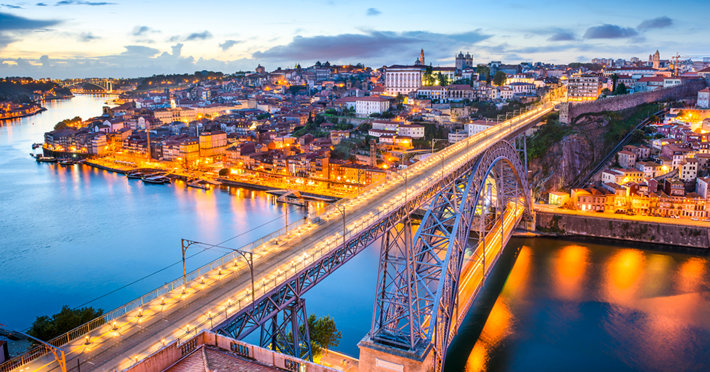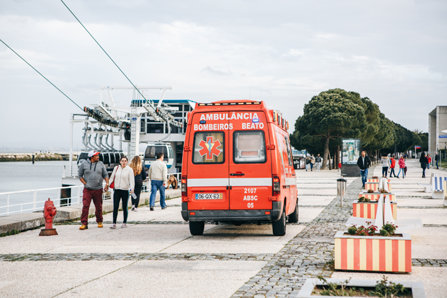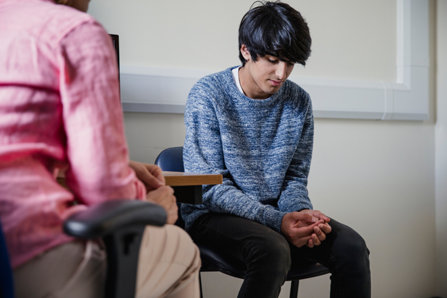Addiction Treatment as a Priority Over Punishment in Portugal

Portugal garnered international headlines almost two decades ago when it first began to draft drug decriminalization legislation. Since then, many media outlets and social commentators have lauded the benefits of the Portuguese model, insisting it be replicated in other nations.
However, despite decriminalization, drug addiction is still a serious problem in Portugal. If anything, the last twenty years of drug addiction in Portugal have shown that no amount of legislation can solve a country’s drug problem. Only through effective treatment, one addict at a time, can we save lives and reduce drug problems in any given area.
Downsides of Recent Developments
While supporters of decriminalization will laud the benefits of a new legal program that ties addicts closer to the public healthcare system, some Portuguese scholars have been quite critical of the new laws. Quoting a study that analyzed both the pros and cons of the legislation, “Some authors believe that there is paternalistic approach by the state and that this state paternalism may go against constitutional principles of freedom and human dignity.” By “state paternalism” it is meant that the state is implementing policies and programs that infringe on the freedom and autonomy of its citizens, despite the insistence of the state that its policies and programs are of benefit to the citizenry.
When a state institutes policies that exert demands upon its civilians, there must always be vigorous debate as to whether or not the restriction of civilian rights is worth the benefit of state policies. Despite the international media narrative that Portugal’s decriminalization programs have been beneficial, on the ground in Portugal, the debate over the policy measures is still very alive and energetic.
Would it be possible to help people who are addicted to drugs in Portugal get clean through qualified treatment and not infringe on their constitutional rights in the process?

The Scope of Drug Abuse in Portugal
Addressing Portugal’s ongoing drug problem begins with understanding the scope of that problem. According to the European Monitoring Center for Drugs and Drug Addiction, at least 33,290 Portuguese citizens are addicted to opioids, all of whom are at extremely high risk.
Despite drug use decriminalization, there are still many laws in Portugal against drugs, primarily drug trafficking and drug sale. And because there are still tens of thousands of addicts in Portugal, these laws are violated by traffickers and drug dealers who see a market for drug sales. According to the EMCDDA, at least 16,970 drug law offenses are committed each year. Cannabis, cocaine, heroin, and MDMA are the drugs most often seized by law enforcement during such crackdowns.
Also, despite drug decriminalization, drug deaths have remained about the same in Portugal, with each year since 2006 reporting anywhere from 10 to 60 drug-related fatalities. However, it is uncertain if these numbers are accurate due to underreporting of toxicology reports and cause-of-death data.
An Ongoing Problem – Addiction Still a Crisis in Portugal
There is no doubt that addiction is still a critical issue in Portugal. The crisis of thousands of addicts was not magically solved when new legislation was written, and despite 20 years transpiring since that legislation was drafted, addiction is still a problem. According to further research into the scope of drug addiction in Portugal:
- While drug-related deaths had begun to decline slightly, research shows that drug deaths began to decline before decriminalization legislation was passed. Drug-related deaths went up slightly between 2004 and 2006, just a few years after the legislation was passed.
- While drug use declined among Portuguese youths ages 15 to 29 following decriminalization, drug use actually went up slightly for youths ages 15 to 24. Drug use rates went up significantly for young people ages 20 to 24.

- Similarly, the decriminalization legislation was met with approval when the frequency of drug use decreased for youths ages 13 to 18. But proponents of legislation did not mention that frequency of drug use increased following decriminalization for youths ages 15 to 24.
- Between 2001 and 2007, the misuse of cocaine, amphetamines, cannabis, ecstasy, and LSD increased among the Portuguese general population, mainly the 16 to 64 age group.
- Again concerning drug-related deaths, drugs claimed the lives of 369 Portuguese in 1999, just before decriminalization. In 2003, just two years after decriminalization, drug deaths fell to 152. But in 2007, drug deaths increased to 314, suggesting that decriminalization was not a reliable solution for reducing drug deaths.
Quoting U.S. research into the Portuguese model, “It is safe to say that claims by drug legalization advocates regarding the impact of Portugal’s drug policy exceed the existing scientific basis.” Undoubtedly, it is important not to cherry-pick data points to support a narrative. Rather, one must take a neutral view of an issue and provide neutral coverage of it, analyzing both the positive and negative sides of that issue. While one can argue the merits of a Portuguese program that prioritizes public health and safety of addicts over their incarceration, it is not true that decriminalization in that country led to a drop in drug use rates.

Drug Trafficking – A Problem Unabated
Drug trafficking is a critical problem in Portugal that has not been sufficiently addressed by drug decriminalization legislation, as evidenced by the virtually unchanging figures in drug trafficking offenses in Portugal between 1995 and 2010. In 1995, about 200 people were arrested in Portugal for drug trafficking. And in every year between 1995 and 2010, about the same number of people were arrested.
Arrests pertaining to both drug trafficking and drug use went up considerably, with about 150 people arrested for drug trafficking and use in 1995 and about 300 people arrested for the same crimes in 2010. As long as Portuguese drug-related legislation does not also result in a drop in drug trafficking, that legislation will not be a comprehensive solution to the nation’s drug problem.
Addiction Treatment – Seeking Help for a Drug Problem in Portugal
The most important action to take to end drug addiction in Portugal is to ensure that those who are addicted to drugs receive quality treatment. Quality treatment is what saves lives.
While the decriminalization legislation has perhaps reduced the stigma around addiction and removed the criminal offense nature of addiction (thus potentially promoting treatment as the solution, as opposed to jail time), to the degree that Portuguese addicts do not receive treatment, the problem of drug addiction in Portugal will continue. That’s why it is so important to address the problem fully through treatment.
If you have a family member or loved one in Portugal who is using drugs and who cannot stop, please do everything you can, as quickly as you can, to ensure they receive addiction treatment at a qualified residential center. Please do not wait until it is too late for them to get help. Contact a treatment center today.
Sources:
- https://journals.sagepub.com/doi/full/10.1177/2050324516683640
- https://www.emcdda.europa.eu/system/files/publications/11331/portugal-cdr-2019_0.pdf
- https://obamawhitehouse.archives.gov/sites/default/files/ondcp/Fact_Sheets/portugal_fact_sheet_8-25-10.pdf
- https://www.law.berkeley.edu/files/Laqueur_%282014%29_-_Uses_and_Abuses_of_Drug_Decriminalization_in_Portugal_-_LSI.pdf
